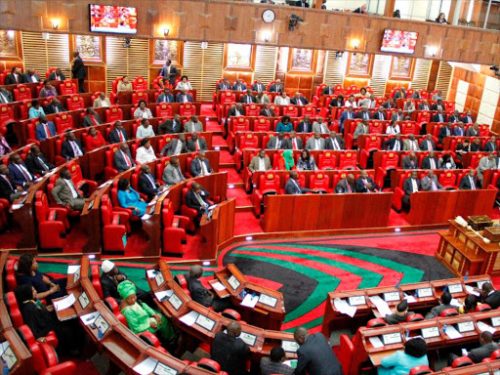Sep. 19, 2020, | Updated Aug 04, 2022 by Joshua Ngala @JoshuaNgala This article was originally published on The Star Newspaper Website
Kenya is suffering a season of infected political discourse. A time when some political leaders are competitively differentiating themselves from the rest by hurling insults at each other.
Such political blind spots should never be given space by the electorate. When one hears such political utterances, the first casualty is often the truth.
A recent Veracity Index 2020 by Ipsos on whom people trust most ranks politicians the lowest at 32 percent, while nurses ranked as the most trusted service providers at 97 percent.
The boorish acts we see around us justify the failed level of trust. It means politicians have sunk so low that they cannot fulfill their purpose and promises.
1. Starting point for a political promise
MPs should not remain mere lawmakers, but create more value for the electorate. That is the basic starting point for a political promise.
The time has come for political leaders to self-reflect and take inventory of their brands. While politics plays a top position in governance, it should not be considered as just icing on the cake, but everything on the cake.
Abuses, insults, and endless rhetoric will blindly push Kenya into the abyss. Such ugly images live in the minds of voters, in contrast with what they have been promised. This disgusting experience might also drive the bad behavior of other people.
Politicians have sunk so low they cannot fulfill their purpose and promises. They are no longer at the apex.
Politicians have always taken advantage of social epidemics. This situation is where their behaviors and ideas diffuse through a population. As usual, bad behaviors and utterances spread like a virus.
They have mastered the art of violating public expectations by breaking a pattern. For that reason, their surprises get national attention.
2. The monkey see monkey do tendency
One major way social influence affects us is through conformity. Some young leaders are already imitating the impunity shown by their seniors. The monkey see monkey do tendency.
These leaders must understand that political brands are built on foundations of respect, purpose, promise, accountability, and our national history.
Joe McGinniss summed up in his seminal 1969 book, The Selling of the President 1969, in which he said politics has always been a con game. He meant that a lot of political actions are never decided by logic and facts. Beware of how your appearance, actions, and words reflect on your brand.
Comb through your touchpoints to see if anything is off-values. A political office must be a brand that connects with the constituents. Even a small misstep can be blown into a huge mistake that distorts your brand.
In any services business, the true value is created in the interface between the consumer and the employee. In this case, the consumer is Wanjiku, and the employer to the elected leaders.
3. A politician who respects voters must be in the ‘value zone’
I would want to witness a fierce political competition where values created go to voters. Where opposition not only makes noise in the public eye but also holds the government accountable in all aspects.
A politician who respects Kenyans must be in the ‘value zone’, where development takes place and bills are sponsored. They must show empathy and pass values onto the electorate as enshrined in our national laws.
Leaders should be reminded of the Sustainable Development Goals, the universal call to action to end poverty, protect the planet and ensure all people achieve a better and more sustainable future by 2030.
Leaders must understand political brands are built on foundations of respect, purpose, promise, accountability, and our national history.
They should also be reminded of the institutional voids in our health sector and education system. These are the kinds of conversations Kenyans want to have.
Bad political behavior is harmful and costly for stakeholders, markets, society, and the economy. Change comes with public accountability which includes imparting values to the electorate.
4. Voters need to prioritize themselves as the employers of politicians
The era of elected leaders being at the apex is long gone. They must be accountable to the public. They must stop taking the electorate for mere voters, but view them as consumers and potential rivals.
Voters have become rational. They now need to start prioritizing themselves as the employers and elected leaders come second as employees. Good values and public accountability should be a threshold for reelection.
In 2000, Al Gore was a conflicted man. He had built up a solid reputation for eight years as a competent vice president.
He lost the presidency but later on, found his branding mojo. He became the subject of an Oscar-winning film, An Inconvenient Truth, and the Nobel Peace Prize recipient.
5. Push the envelope of transparency
A specific trust-building action is pushing the envelope of transparency. Most voters know what ails their leaders, sometimes even before they do or admit it.
It is time we became obsessed with constant change for better leadership with values. Even in a typical marketing strategy, it is important to consider the business’s position in the market.






